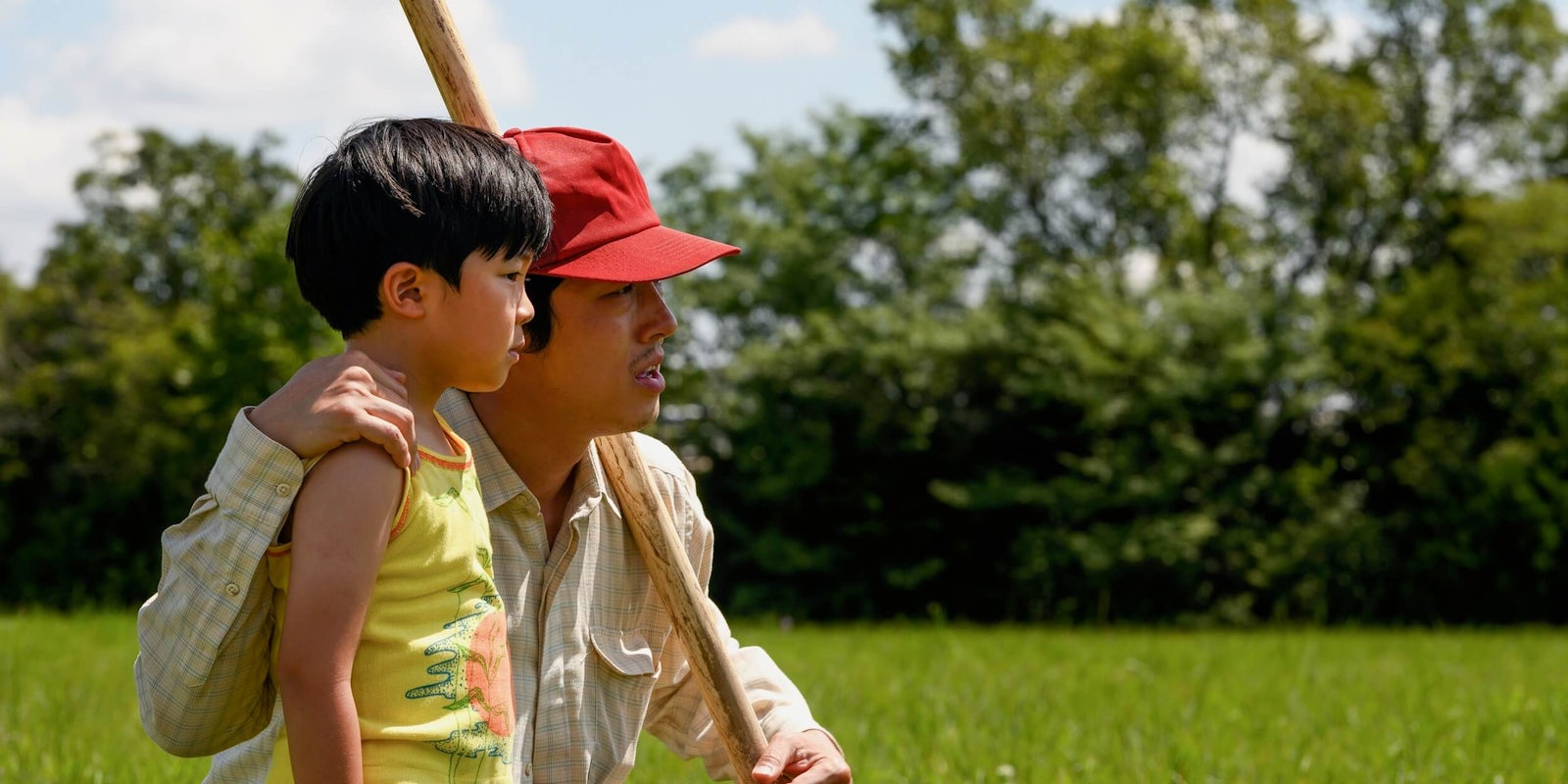Minari is slow to start, but it almost immediately starts pulling at the heartstrings in a semi-autobiographical film from writer-director Lee Isaac Chung. Anchored by its characters and astounding performances from its central cast, it’s a gentle, empathetic, and powerful story about the American dream and making your own way in the world.
DIRECTOR: Lee Isaac Chung
RELEASE: Theatrical
A Korean American family moves to a farm in Arkansas from California as the patriarch hopes to create something of his own. Meanwhile, the young son clashes with his grandmother, who he’s meeting for the first time when she arrives from South Korea, because she doesn’t match what he knows about grandmothers.
We’re immediately introduced to the Yi family as Jacob (Steven Yeun) and Monica (Han Yeri) drive their young children Anne (Noel Kate Cho) and David (Alan Kim) to their new trailer home in Arkansas, one that’s secluded from the rest of the world. By day, Jacob and Monica work as “chicken sexers,” which requires them to identify and separate baby chickens by gender, a monotonous task that Jacob is highly skilled at performing. At night, Jacob tries his hand at shaping the acres of farmland to his will and growing Korean produce for a growing immigrant population in the Midwest, but it almost seems like a Sisyphean task: Whenever something goes right, it almost seems like another aspect falls apart. The last owner, the Yis later learn, killed himself after his farm failed.
The move itself, and Jacob’s dreams of a farm that took them from California to Arkansas, is enough to cause even more strife in a marriage—which took Jacob and Monica from Korea to the U.S. in the ’70s before their move to Arkansas—that’s full of it. They argue over their financials (which seem to become even direr the more money that Jacob invests into his farm) and David, who was born with a heart murmur, because the closest hospital is an hour away. The trailer that they’ve slowly begun to make their home looks like a single tornado could whisk it away, and Monica clearly didn’t want to move there in the first place. Her resentment only grows the longer they stay there; soon enough, farming takes a physical toll on Jacob.
You can tell that it’s not the first time that Jacob and Monica had this argument, whether it’s in Korean, English, or both; David and Anne, who hear their arguments from a distance, throw paper airplanes toward them with messages that read “Don’t fight” toward them.
Yeun is mesmerizing throughout the entire film, whether he’s passing on wisdom to David or tending to the land with his god-fearing neighbor Paul (Will Patton), who wheels his own life-size cross along a dirt road on Sundays. And while Jacob isn’t always sure about Paul, Paul is never made to be the butt of the joke by the film, even though he’s seen as a source of mockery by some of the kids in town.
But the true star of Minari is Kim as David, a 7-year-old who’s the perfect blend of curious and pretentious and wants to do nothing more than run around the property. He can’t really run because of his hearth condition; Monica and Anne, the older sibling, are overly protective of him because of it. Much of Minari is from his viewpoint, often making a small story feel larger than life, and the score from Emile Mosseri ties it all together beautifully.
David’s pent-up energy is turned toward his grandmother Soonja (Youn Yuh Jung), who flies in from South Korea to help look after Anne and David—who instantly declares that Soonja “smells like Korea” and isn’t a real grandmother because she doesn’t act like the grandmothers he’s been exposed to before. What follows is a push and pull between grandmother and grandson (resulting in some of the film’s most humorous moments) and the formation of a reluctant bond (on one side at least), one made in parallel with the Yi family’s strive to find their place in this new life. Anne and David become more immersed in their new home, becoming regular members of a local church, but those connections also arrive with a mix of casual racism.
Minari—named for the plant that Soonja brings over from South Korea that she says can grow anywhere—is a slow burn that requires patience but is well worth the investment. So many of the film’s great moments arrive without much fanfare, but because you’ve spent time with these characters, those victories feel earned. And when the other shoe drops, it’s emotionally devastating. Its relatability is its strength, so by the time you watch all of the highs and lows play out, you’re on that ride right alongside them, but there’s no question as to how they’ll meet each new challenge: they’ll meet it head-on and in their own way, as they’ve always done.
Minari screened at the Sundance Film Festival and won the top awards.

